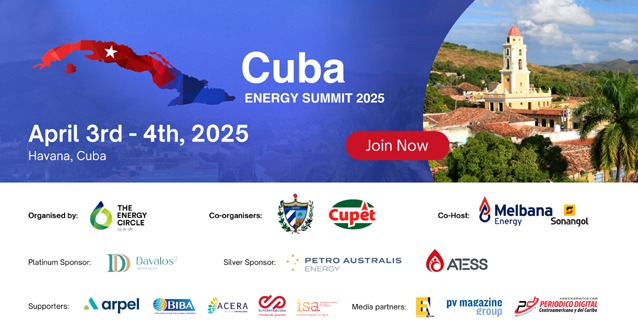The International Seabed Authority (ISA), a UN body, met in Kingston, Jamaica, last week to agree a route for finalizing regulations by July 2023 that would allow the undersea mining of cobalt, nickel and other metals to go ahead, reports the Guardian. Discussions on this topic have been under way since 2017, but have been snarled up over how to share future mining proceeds among nations.
Then in June of this year, the South Pacific island nation of Nauru invoked a rule that requires the ISA to complete the code within two years or provisionally approve a “plan of work” to mine polymetallic nodules by a company Nauru sponsors under whatever regulations are in place at the time, explains China Dialogue Ocean.
Mining companies counter that the minerals that could be obtained from deep sea mining – copper, cobalt, nickel and manganese – are essential for a green transition, reported the Guardian in a deep-dive article earlier this year. Nonetheless many battery-makers and industrial users are lining up with the conservationists rather than the miners. In April, BMW, Volvo, Google and Samsung joined a World Wildlife Fund (WWF) call for a moratorium on seabed mining; 621 marine science and policy experts also signed the open letter calling for a pause on deep seabed mining until “sufficient and robust scientific information has been obtained”. (Climate Change News)
“More than 80% of the oceans remains unmapped, unobserved and unexplored, and there is increasing opposition to deep-sea mining from governments, civil society groups and scientists, who say loss of biodiversity is inevitable, and likely to be permanent if it goes ahead.”
In October, a group of 10 Latin American and Caribbean nations, including Costa Rica, Argentina and Chile, filed a submission to the Council expressing unease with the two-year deadline. It noted that, among other things, the ISA has yet to agree on the creation of an inspectorate to monitor mining and enforce regulations and has not adopted environmental management plans for areas of the deep sea targeted for mining.
But there is little reason to believe the ISA would act in favor of conservation: The commission has a 100% record of approving exploration applications, reports the Guardian. Membership of its Legal and Technical Commission is skewed towards extraction rather than environmental oversight – a fifth of the members work directly for contractors with deep-sea mining projects.
Climate Justice and Energy
- Fish populations were significantly benefited by pandemic lockdowns in the Cayman Islands — during which local waters were devoid not just of cruise ships, but also of jetskis, fishing vessels and dive boats — according to an ongoing Central Caribbean Marine Institute study. (Cayman Compass)
- “Like many small island, big ocean states, Saint Vincent and the Grenadines faces a complex web of interconnected environmental challenges that affect human rights, especially the right to a clean, healthy and sustainable environment,” said United Nations Special Rapporteur David R. Boyd after an official visit to the country. “The global climate crisis is multiplying a number of environmental risks, forcing the government to dedicate its limited resources to repair, rebuild, and reconstruct instead of develop. Saint Vincent and the Grenadines represents a textbook example of global climate injustice. Despite its negligible contribution to the problem, this nation is suffering and will continue to suffer dramatic consequences with major human rights implications, especially with regard to vulnerable populations.”
- Guyanese Vice President Bharrat Jagdeo said the country’s Natural Resources Fund legislation “is cumbersome” and “almost impossible to operationalize,” and indicated the government will seek to remove an oversight committee consisting of 22 organizations, reports Kaieteur News. Critics counter that the move would open the door for more corruption, reports Kaieteur News separately.
- The Guyanese decision to reopen mining at Marudi Mountain has attracted a growing chorus of denunciations from people who say the South Rupununi Development Council, that represents the Indigenous people of the surrounding area, mostly Wapichan, was not adequately consulted about the extraction plan that affects the territory, reports Stabroek.
- The United Nations Environment Programme recognized Barbados Prime Minister Mia Mottley with the Champions of the Earth award for policy leadership, the UN’s highest environmental honour.
- Yamide Dagnet, from Guadeloupe, will take on the newly created role of director for Climate Justice at the Open Society Foundations, leading efforts to strengthen the Foundations’ commitment to climate justice and make it the centerpiece of Open Society’s work.
Public Security
- Before being assassinated in July, Haitian President Jovenel Moïse had been working on a list of powerful politicians and business people involved in Haiti’s drug trade, reports the New York Times. He planned to hand the dossier over to the U.S. government. The attackers who killed Moïse ransacked his bedroom, and in interrogations, some of the captured hit men confessed that retrieving the list was a top priority.
- Haitian blogger Patricia Camilien calls on the Moïse aides who were compiling the list to publicize the information, and contextualizes the piece within the ongoing power struggle between Moïse supporters and those of former president Michel Martelly, originally Moïse’s political mentor. (La Loi De Ma Bouche)
- Religious groups are among the final institutions left in Haiti, delivering aid and support to an afflicted population — but that has made priests, nuns and missionaries prime targets for kidnapping and extortion, explains InSight Crime.
- Several aid organizations in Haiti have temporarily cut back operations in response to a spike in violence that has hindered their work precisely as it is most needed, reports the Associated Press.
- A gasoline tanker overturned and exploded in northern Haiti yesterday, unleashing a fireball that swept through homes and businesses on its way to killing at least 75 people, reports the Associated Press.
Decolonization
- Jamaica’s Chief Justice Bryan Sykes has reaffirmed his commitment to ensuring that Jamaica adopts the Caribbean Court of Justice (CCJ) as the island’s final appellate court, instead of the UK Privy Court, reports the Jamaica Gleaner.
- Calls for Jamaica to cut ties with the British monarchy have heightened arising from Barbados’ transition to a republic last week. Prime Minister Andrew Holness said more attention should be given to building a strong and prosperous country rather than “empty symbolism,” reports the Jamaica Gleaner.
- DefendPR released a documentary about the process of public school closures (over 500 in past years) in Puerto Rico, pushed by the U.S. imposed Fiscal Oversight Board. Watch at https://vimeo.com/535737291, PW: defendprmedia.
Economics, Finance and Debt
- Barbados’ government is advancing on a plan to provide citizens with a universal basic income. Avinash Persaud, Special Envoy to the Prime Minister of Barbados on Investment and Financial Services, wrote recently that “despite all the pressure from international agencies to ‘target’ we hold the line on universality.” (Barbados Today)
- President of the Caribbean Development Bank Gene Leon urged regional governments to institute strong accountability and compliance mechanisms to ensure that corruption does not limit access to climate finance from multilateral and private sources, reports Kaieteur News.
- The International Monetary Fund has warned of “economic collapse” in St. Vincent and the Grenadines, Haiti, and other low-income countries, unless creditors in the world’s richest nations suspend debt-service obligations and help renegotiate new terms. With the Group of 20’s debt-service suspension initiative expiring at the end of the year and interest rates poised to rise, “low-income countries will find it increasingly difficult to service their debts,” the IMF officials said. (St. Vincent Times)
- The Caribbean Centre for Human Rights in Trinidad & Tobago held a dialogue on human rights and banking. The recording can be found here
Covid-19
- Covid-19 variants, coupled with high levels of vaccine hesitancy, correspondingly low vaccination rates, rampant social media misinformation, and economic hardship exacerbated by recurring lockdowns set the Caribbean stage for vaccine mandate unrest, writes Janine Mendes-Franco at Global Voices.
- A Global Americans report focuses on vaccines in the Caribbean region, with a view to understanding some of the vaccine diplomacy dynamics, notably in relation to the great powers and their combination of humanitarian and geopolitical motives.
- “Without massive testing and complete mortality statistics, it is impossible to know how many people have been infected and died from Covid-19 in Haiti. But one thing is clear, the Haitian health authorities have not had control over the spread of the virus in the country,” report the Centro de Periodismo Investigativo and AyiboPost.
Migration
- Aruba, Curaçao, the Dominican Republic, Guyana and Trinidad and Tobago host some of the world’s highest concentrations of refugees and migrants per capita, according to the Regional Inter-agency Coordination Platform for Refugees and Migrants from Venezuela.
- Trinidadian Agriculture Minister Clarence Rambharat said there has been a global increase in food prices, and Trinidad and Tobago’s agricultural production was saved by Venezuelan labor — Trinidad Express.
- Sexual trafficking here has become one of the most prevalent risks for Venezuelan women in Guyana, with mining sites becoming hotspots for this kind of exploitation, reports Connectas.
Gender
- “Boy, Girl and All the Rest” — A short film about an abused non-binary child and their plight for acceptance and redemption in Jamaica.
Culture
- Haitian film ‘Freda’ was selected for the Cannes Film Festival and has generated excitement at home and abroad — Washington Post.
- “The dub poet Linton Kwesi Johnson fused Jamaican music, linguistic innovation, and socialist politics. A new study finally treats his work with the seriousness it deserves,” writes Edmund Hardy in Jacobin.
- One of reggae music’s most admired bass players, Robbie Shakespeare, died in Florida at age 68 from kidney-related complications. He was “considered by many to be the greatest reggae bass player of all time,” writes Emma Lewis in Global Voices.
Opportunities
- Apply now – University of the West Indies Climate Change and Health Leaders Fellowship Program. Eligible Caribbean Countries for Round 2: Antigua & Barbuda, Belize, Cuba, Dominica, Dominican Republic, Grenada, Guyana, Jamaica, Saint Kitts and Nevis, Trinidad and Tobago. Application process open.
- Consultancy for Capacity Building through Training Programmes in Treaty and Legislative Drafting. Assignment duration: 24 months, home-based with regular trips to CARIFORUM Member. Project information: This consultancy is inscribed within the project “Support to CARIFORUM Member states in furthering the implementation of their Economic Partnership Agreement commitments and on meaningfully reaping the Benefits of the Agreement”, financed under the 11th EDF. https://www.bseurope.com/node/60342
We welcome comments and critiques on the Just Caribbean Updates. You can see the Updates on our website, as well as receive it directly through the mailing list. Thank you for reading.












